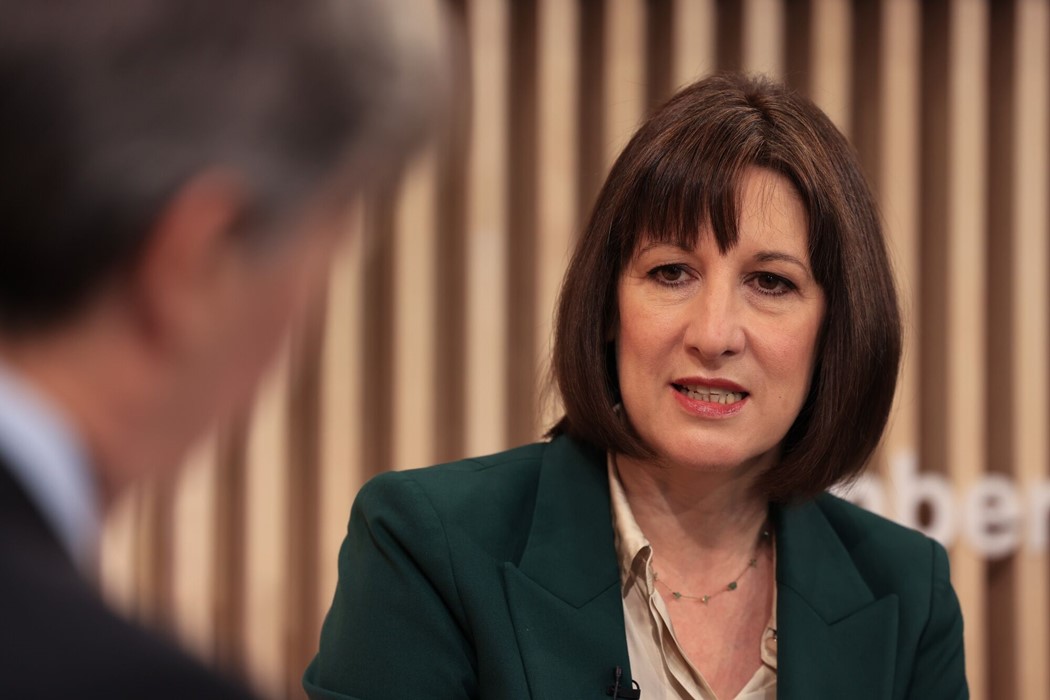Cabinet Doubts Linger Over Boost From Reeves’ UK Airport Plan
Jan 27, 2025 by Bloomberg(Bloomberg) -- UK cabinet ministers are questioning whether a proposed expansion of London’s Heathrow, Gatwick and Luton airports would have the growth impact intended, as tensions brew within government over Chancellor of the Exchequer Rachel Reeves’ growth plans.
Britain’s finance minister is poised to announce some or all of the controversial airport decisions on Wednesday in a speech on growth. Reeves made the case for a bigger Heathrow during appearances on the Sunday talkshows, in her strongest signal yet that she’s ready to green-light a controversial third runway at the UK’s main international airport.

But the plans have split Keir Starmer’s cabinet and wider party, with Labour figures raising environmental concerns around noise, air pollution and greenhouse gases. Some ministers also doubt there is evidence such a move would deliver the desired boost to the economy.
Criticisms include that London airport expansions would displace growth from other regions, benefits would only be felt in the 2030s, and doubts it would spur any economic growth at all, a person familiar with the cabinet discussions said, asking not to be named talking about private exchanges.
With the economy flat-lining, Reeves is on a drive to show how the Labour government — in power since July after 14 years in opposition — is committed to spurring growth by fast-tracking housebuilding and infrastructure projects from wind farms to airports. Starmer last week unveiled plans to limit legal challenges to major projects.
A senior government official said Labour ministers should support the core objective of economic growth, warning ministers with environmental concerns that opposing the policy would see them join the blockers who inhibited growth in the past.
The push has become particularly urgent in recent weeks after market ructions pushed up borrowing costs, eroding away the slim margin Reeves had in her spending plans in October’s budget.
That’s put attention on an economic forecast being prepared by the government’s fiscal watchdog, the Office for Budget Responsibility, for March 26. If the OBR finds she’s in breach of her fiscal rule that day-to-day spending be covered by tax receipts by 2029-30, she’ll have to adjust her plans.

However, if Reeves can persuade the OBR that her measures now will boost growth before its forecast horizon, the watchdog’s outlook might be rosier. It would also be a powerful signal to private investors.
“Where this really matters for Reeves is whether this sort of thing can convince the OBR to get materially more optimistic,” said James Smith, developed markets economist at ING. “Airports won’t be ready for years, but this is the immediate prize and it’s a bit of a chicken and egg.”
Heathrow’s expansion through construction of a third runway in particular has long been controversial, and the last time it was voted on in Parliament — in 2018 — eight members of the current cabinet voted against it, including Starmer and the now Energy Secretary Ed Miliband, whose department is in charge of climate policy.

Asked by the Press Association whether he would resign over the issue, Miliband last week said “don’t be ridiculous, no.” But long-time Heathrow expansion opponent Sadiq Khan, Labour’s London Mayor, said his views haven’t changed.
The government divisions reflect a split among economists about whether unblocking airport development can help deliver Labour’s pledge to turbo-charge a stagnant economy. While some question global demand for business travel post-Covid, others point to current capacity constraints and the potential for cheaper flights, particularly at Heathrow, the UK’s main hub for flight connections and also a key trade artery.
Reeves appeared to acknowledge the split over Heathrow, telling Sky News on Sunday that an announcement would be made “when ready to, with collective ministerial responsibility.” She also argued that advancements in technology had changed the debate over the environmental impact of a third runway.
“Sustainable aviation fuel is changing carbon emissions from flying, there’s huge investment going on electric planes and also a third runway would mean that instead of circling London, flights can land at Heathrow,” Reeves told the BBC.
She also has the backing of business groups. Expanding airport capacity “is vital to driving economic growth and it remains a top priority for business,” British Chambers of Commerce Director General Shevaun Haviland said.

In 2016, government analysis of a third runway at Heathrow calculated it would create up to 77,000 local jobs over 14 years and benefit the wider economy to the tune of £61 billion ($76 billion) over 60 years. A spokesperson for Heathrow said any update to that analysis would be published if and when it chooses to push forward with the project.
Post-pandemic, doubts have been raised over the economic benefits and whether it will displace activity from the rest of the country. While leisure visits to the UK returned to pre-Covid levels in 2023, business travel was still at around 75% of 2019 levels, according to Office for National Statistics data. Nonetheless, separate World Travel & Tourism Council figures in October projected that annual spending on corporate travel in the UK in 2024 would hit a record $84 billion.
“We seriously question how aviation expansion will support economic growth,” said Chris Venables of the environmental think tank Green Alliance. He pointed to data on business travel, as well as a decline in the growth in jobs in air transport and a drop in real wages.
Greater Manchester’s Labour Mayor, Andy Burnham has also raised concerns about London airport expansions potentially displacing growth. In 2020 the New Economics Foundation, a left-wing think tank, used Department for Transport data to argue that expanding Heathrow would shift 27,000 jobs and £43 billion of output away from regions outside London and South East through 2085.
A report last week by UK Day One — a nonpartisan, pro-growth think tank — said that while expanding Heathrow would disproportionately benefit the service sector in the surrounding area, the boost to industry and manufacturing would be felt more elsewhere.
It also highlighted economic benefits from cheaper and more reliable flights — saving £160 for an average family of four flying on holiday — and higher tax revenues that could be spent outside of the South East. Frontier Economics estimated in 2019 that the Heathrow “congestion premium” added £34 to return short-haul flights and £217 for long-haul.
“Even if business travel patterns had changed permanently — for which there is limited evidence — Heathrow’s severe capacity constraints would still justify expansion,” the UK Day One report said. “It is being held back, with consequences for UK growth: the airport is arguably the most capacity-constrained transport hub in the world.”
©2025 Bloomberg L.P.
By


















